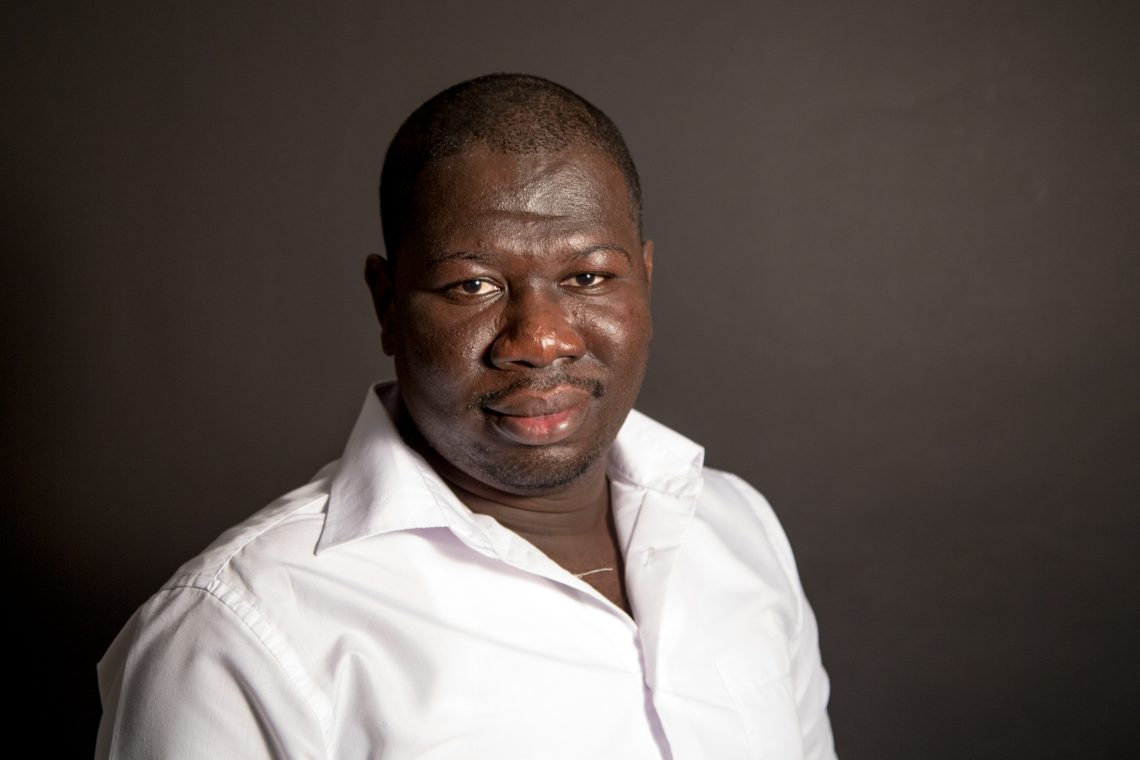
Recently honored by one of the top optometry organizations, he must now decide which career path to take after the College.
If there is a checklist of the personal and intellectual skills needed to be a successful optometrist, Dr. Reynolds Ablordeppey had them all by high school. Good listener, empathetic, problem solver, interested in math, optics and neuroscience. Check check check. Fortunately, when it was time for him to figure out his future, he could read the writing on the wall. “When I was applying to college, optometry seemed like the best profession that encompassed all my interests, and I have never regretted that decision,” he says.
That decision led to him earning a Doctor of Optometry degree from Kwame Nkrumah University of Science and Technology in Ghana in 2016. One year later, Dr. Ablordeppey joined the PhD program at the SUNY Optometry. Expected to graduate in 2022, his research on myopia development and progression, and related structural and functional changes, is not only helping him build a name for himself at the College—but it is positioning him to help people in the United States and his native Ghana.
Like the high schooler who knew he was destined to be an optometrist, Dr. Ablordeppey’s research work as an undergraduate student led to his enrollment at the College. “I decided to do my PhD studies at SUNY Optometry because I had followed the work of Dr. David Troilo, Dr. Alexandra Benavente-Pérez and Dr. Philip Kruger for some time, and their work really looked interesting to me, thus my decision,” he says.
At the College, he works in Dr. Benavente-Pérez’s myopia research lab. It has been the location where he has faced one of the hardest challenges of being a PhD student: the possibility of nothing working out as planned. “PhD research involves a lot of risk taking and so there are a lot of failures and disappointments with the outcome of a project. It is always difficult investing time and effort into a project and not having success,” he says. “In the same vein, when your experiments run smoothly, you get expected or novel findings, and are commended by seasoned researchers and faculty, it is really fulfilling.”
One of these fulfilling moments happened in April, when Dr. Ablordeppey won a 2019 Members-In-Training Poster Award from the Association for Research in Vision and Ophthalmology (ARVO), the world’s largest vision science organization.
The winning poster was a continuation of an earlier work by Dr. Harrison Feng, in which, Dr. Ablordeppey explains, “[Dr. Feng] safely and reliably measured retinal thickness using a Spectral-Domain Optical Coherence Tomography—in vivo. So building on this, we wanted to explore how the individual layers of retina change as a function of refractive error and eye growth.”
Dr. Ablordeppey credits Dr. Benavente-Pérez with helping him to receive the award. She introduced him to the research idea, then worked with him to fine tune how to present it. “Aside from being an excellent mentor, she has really helped me in my presentation and communication skills by drastically improving my ability to communicate my research ideas and project to others,” he says.
In turn, Dr. Benavente-Pérez recognizes the beneficial work and contributions Dr. Ablordeppey is making via his research. “Reynolds’s work is of significance because it confirms the changes described in myopic patients, highlights the validity of our experimental model and, if proven as an early sign of degeneration, will open new avenues for the prevention of pathological myopia,” she says.
Dr. Ablordeppey is still deciding what his post-College life will entail. The decision is between industry and academia, though he has decided to do at least one post-doctoral program to help him decide. “Whatever happens, I hope to do research that I enjoy and that brings a lot of benefits to people,” he says. “And eventually go back to Ghana to help promote research and optometry in the country and Africa.”
Media Contact: Amber E. Hopkins Tingle, 212.938.5607, amber@sunyopt.edu
